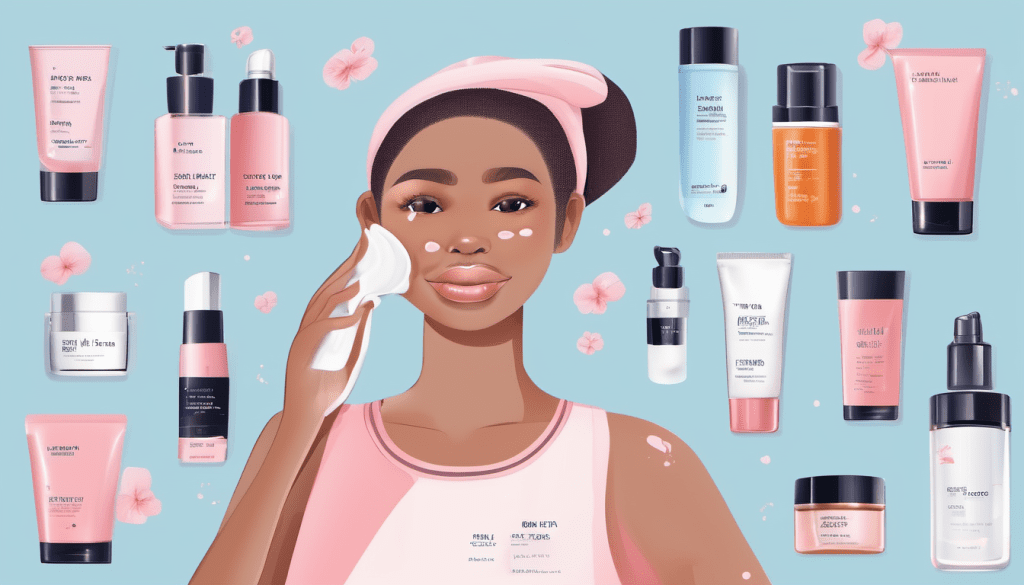
We often take our skin for granted and ignore it in all ways. Our skin is not just a pretty surface but an ecosystem that protects us from external threats and maintain internal balance. In this blog, we delve into the marvels of skin, its intricate structure, its functions of skin and importance of skincare routine. At the end of this blog you will know why is it so important to take good care of your skin.
Table of Contents
A multi-Layered marvel
Our skin is our armor suit. Skin consist of three layers.
The outermost layer, the epidermis, is our first line of defense. It shields us against environmental aggressors, bacteria.
Beneath lies the dermis, the second layer, which contains collagen and elastin, the secret behind youthful skin.
Finally, the third layer, the hypodermis, which stores fat and regulates body temperature.
Functions of Skin
•Beyond its protective role, Skin regulates body temperature through sweat production and blood vessel dilation.
•Prevents dehydration.
•Produces vitamin D when exposed to sunlight.
•Additionally, skin acts as a sensory organ, relaying sensations of touch, pressure, pain and temperature.
Unveiling Skin Type
Our skin produces natural oils, like sebum, to keep it supple and prevent moisture loss. The amount of sebum produced determines the skin type:
• Oily skin: Excessive sebum production makes skin prone to breakouts and a shiny appearance.
• Dry skin: This skin type lacks enough sebum, leading to rough and flaky texture.
• Combination skin: A mix of oily and dry zones, this requires targeted care.
• Sensitive skin: This type is prone to reaction from harsh products. You could easily damage this type of skin, needs some extra care.
Secrets of Healthy skin:
For most of the people healthy skin means fair skin complexion, but in reality healthy skin has nothing to do with complexion.
Here are some keys to remember for healthy skin and importance of skincare routine:
•Cleansing wisely: Washing your face twice daily to remove dirt, excess oil, sweat and any product buildup. But remember be gentle with your skin, over cleansing can disturb your natural oil balance leading to skin barrier damage.
• Hydration is the king: All skin types need moisture. Choose lightweight oil free moisturizer for oily skin and a richer cream for dry skin.
Serum: When we start using vitamin c or any other active ingredient our skin becomes more sensitive to sun. So do not forget to apply sunscreen with a broad-spectrum SPF of 30 or higher atop your Vitamin C serum to safeguard your skin against harmful UV rays.
• Sunscreen: This is your daily armor. UV rays damages your skin leading to tanning, pigmentation, wrinkles. Sunscreen blocks UV rays and protects your skin. Apply a broad-spectrum, at least SPF 30+ sunscreen daily, even if it’s a cloudy day.
• Lifestyle matters: For skin health diet, sleep and stress all play important role. Eat balanced diet rich in fruits and green veggies, take at least 6-8 Hrs. of sleep and manage stress for glowing skin.
Conclusion:
Treat your skin like the armor it is, protecting and preserving it. Embrace its uniqueness and explore different routines to find what works best for you.
By understanding your skin and implementing these tips, you can get a healthy skin and radiant complexion!
Pingback: Understanding Sodium Lauryl Sulfate (SLS) -
Pingback: 7 Surprising Benefits of Flaxseed Oil for Skin and Hair: Unlocking the Secret -
Pingback: Radiant Skin with an Easy 3-Step Morning Routine -
Pingback: Ultimate Guide to Managing Oily Skin: Tips and Treatments for a Clear Complexion -
Pingback: 5 Reasons Salicylic Acid is the Ultimate Acne Solution -
Pingback: Top 5 Best Vitamin C serums available in India -
Pingback: "Exfoliation Excellence: 5 Powerful Reasons to Embrace This Skincare Secret and Avoid Common Mistakes" -
Your point of view caught my eye and was very interesting. Thanks. I have a question for you.
I’d be glad to help clarify any doubts! Could you let me know which specific points or sections of the article you’re unsure about? That way, I can provide more detailed explanations or further information.